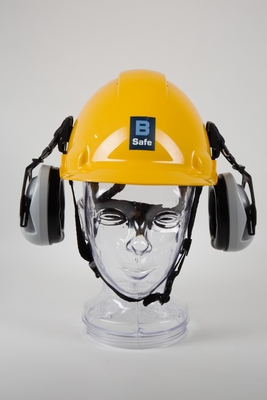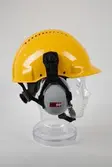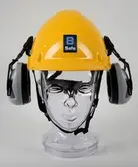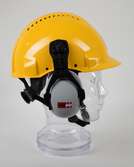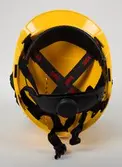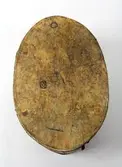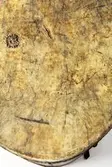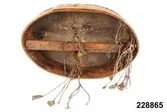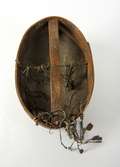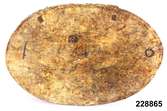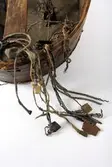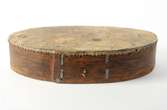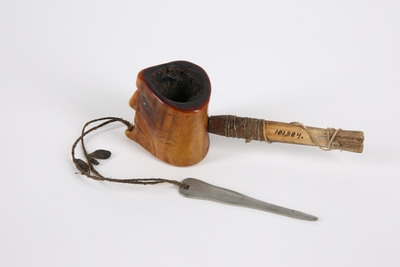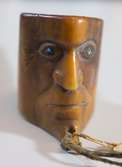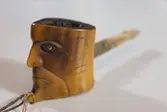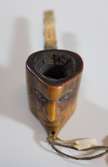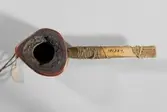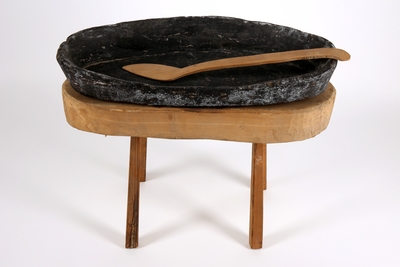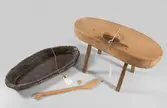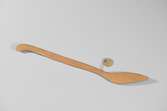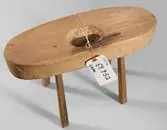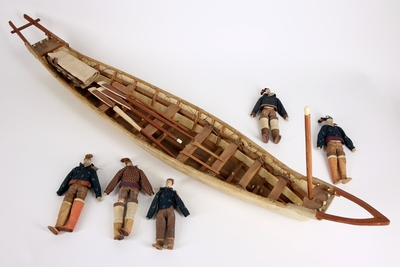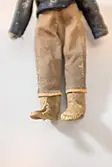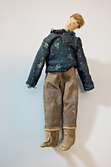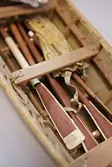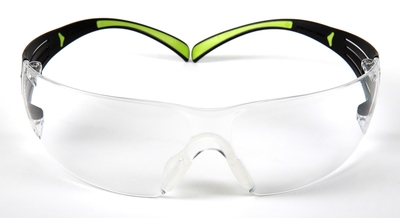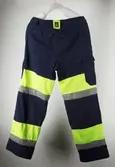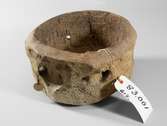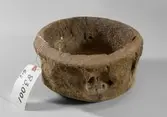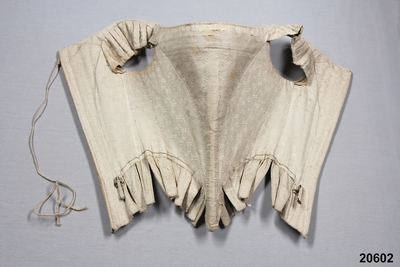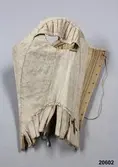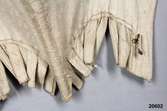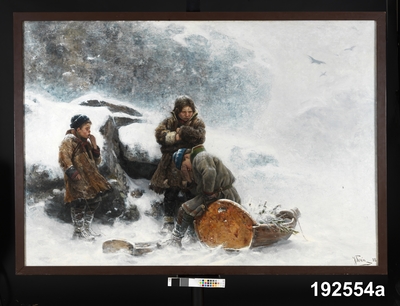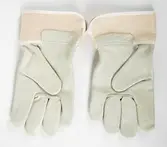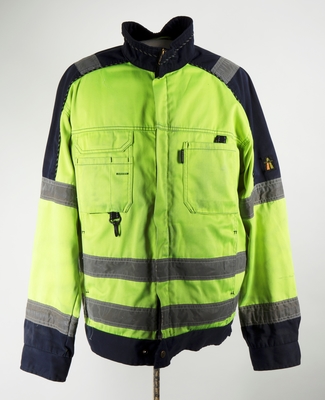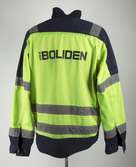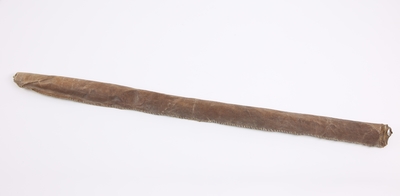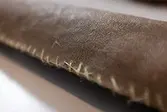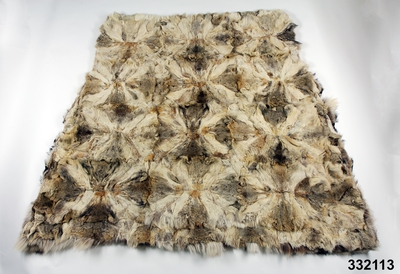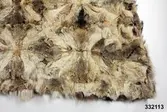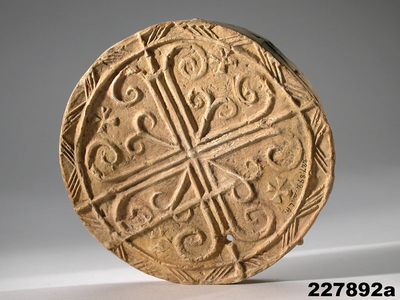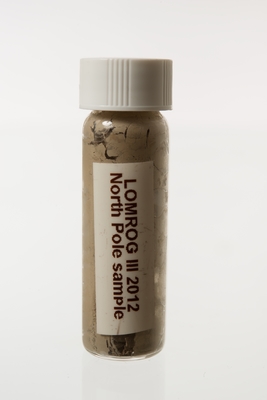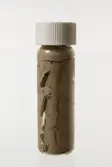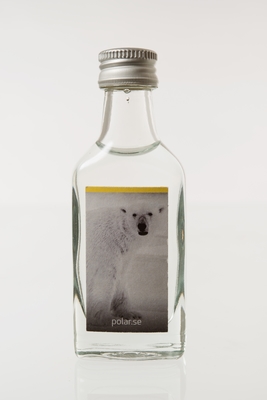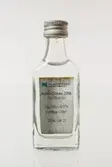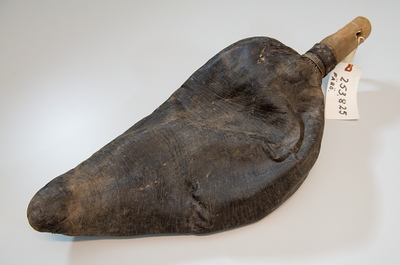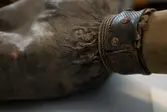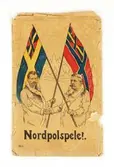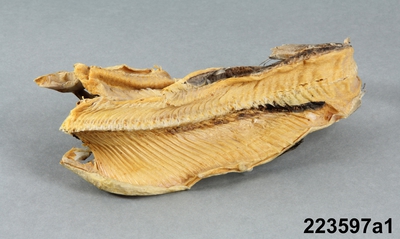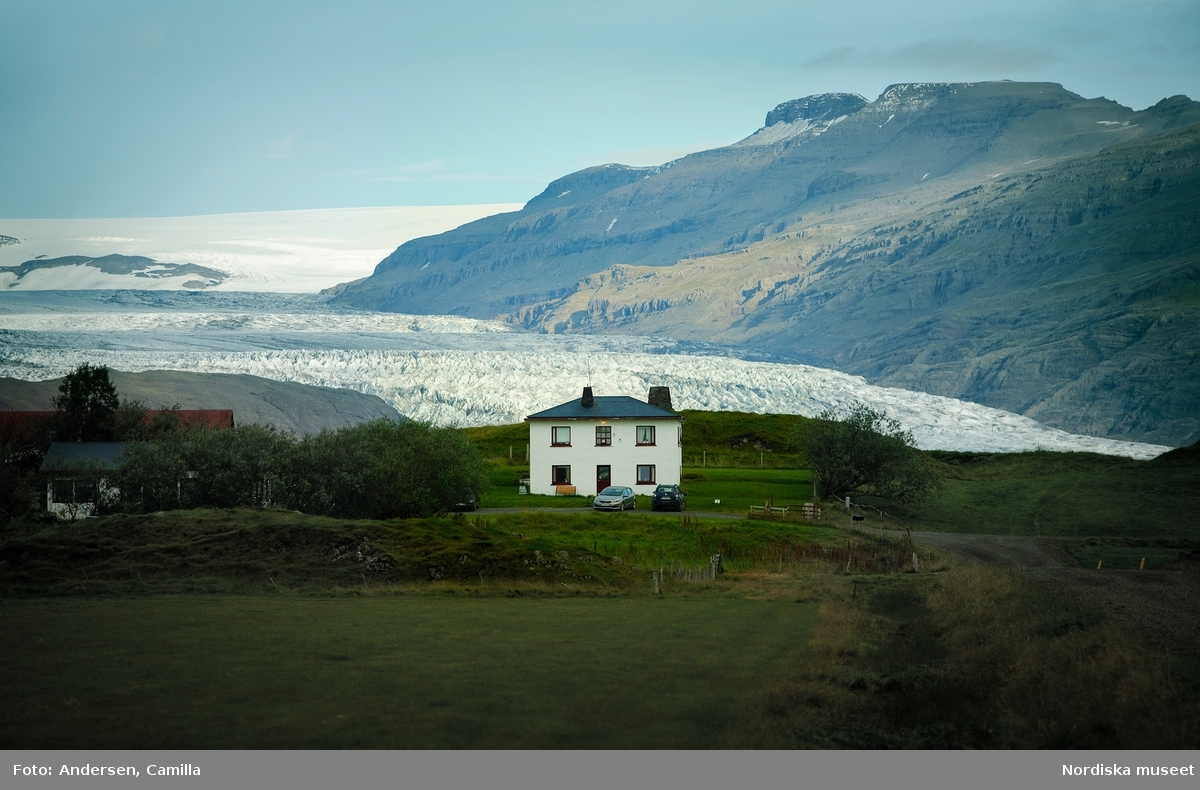
With the North Pole as its axis, directly under the North Star. Where the meridians meet and the time zones end. Where winter has no light and summer no darkness. This is where the ...
225 objects
Skyddshjälm
Gul skyddshjälm 3M för industrin, storlek 53-62. Framställd för att skydda bäraren mot föremål som kan träffa huvudet. Hjälminredet består av svarta remmar, svettband och nackband ...
Trumma
Huvudliggaren:
"Lapptrumma med lös hammre. (Manker nr 7). Dep. 15/11 1943. Deposition av Statens Hist. Museum enl. instr. 2/2 1943. [Tidigare numrering] St. H. M. 360:24."
Lampa
Båtmodell
Skyddsglasögon
Skyddsglasögon av genomskinlig plast, med mjuka skalmar i svart och grönt. Används för att skydda ögonen mot damm och smuts. Enligt bruksanvisningen uppfyller de grundläggande säke ...
Byxor
Mörkblå byxor som hör till arbetskläder för gruvarbete, tillverkade av polyester (80%) och bomull (20%) med reflexband och varningsfärgat neongult tyg av polyester (65%) och bomul ...
Kärl
Snörliv
Huvudliggaren: "Snörlif. Af hvitt siden, från 1770-talet." Liv till hovdräkt s.k. "robe á la cour" av ursprungligen vit sidendroguet. Tyget förmodligen svensk tillverkning (Myrman ...
Handskar
Jacka
Jacka som hör till arbetskläder för gruvarbete, tillverkade av polyester (80%) och bomull (20%) med reflexband och varningsfärgat neongult tyg av polyester (65%) och bomull (35%). ...
Fäll
Vargskinnsfäll bestående av 48 varghuvuden. Vargfällens rätsida består av ett blått kypertvävt tyg. Bräm av vargskinn bildar en kantning både på skinnsidan och på tygsidan. Varghuv ...
Renost
Provrör
Provrör av klar plast med vit plastkork, innhållande sediment från Arktis. Påklistrad etikett med texten "LOMROG III 2012 North Pole sample". Provet togs från havsbotten i samband ...
Vattenflaska
Torskrevsboj
Sällskapsspel
Tärningsspel, flerfärgstryck på papper, för obegränsat antal spelare indelade i två grupper. Spelplanen består av bildrutor med motiv från olika platser på vägen mot Nordpolen. Spe ...
Torrfisk
Through the exhibition you will learn more about the Arctic, its resources, and how climate change is affecting the area. You will also be able to explore traditional clothing, housing and means of transportation. In the exhibition you can also leave a promise to yourself and the planet - what can you do to decrease your ecological footprint? What happens in the Arctic affects you, and your way of life affects the Arctic.
The exhibition stems from the collaborative research on the subject People in the Arctic in the light of climate change led by Lotten Gustafsson Reinius, Hallwyl Visiting Professor of Ethnology at Nordiska museet and Stockholm University.
Nordiska museet collaborates with exhibition designers MUSEEA. Documentary photographer Camilla Andersen has created footage for the short films produced by the museum in collaboration with local communities and researchers. The project is partly financed by the Nordic Culture Fund and FORMAS, the Research Council for Sustainable Development.
